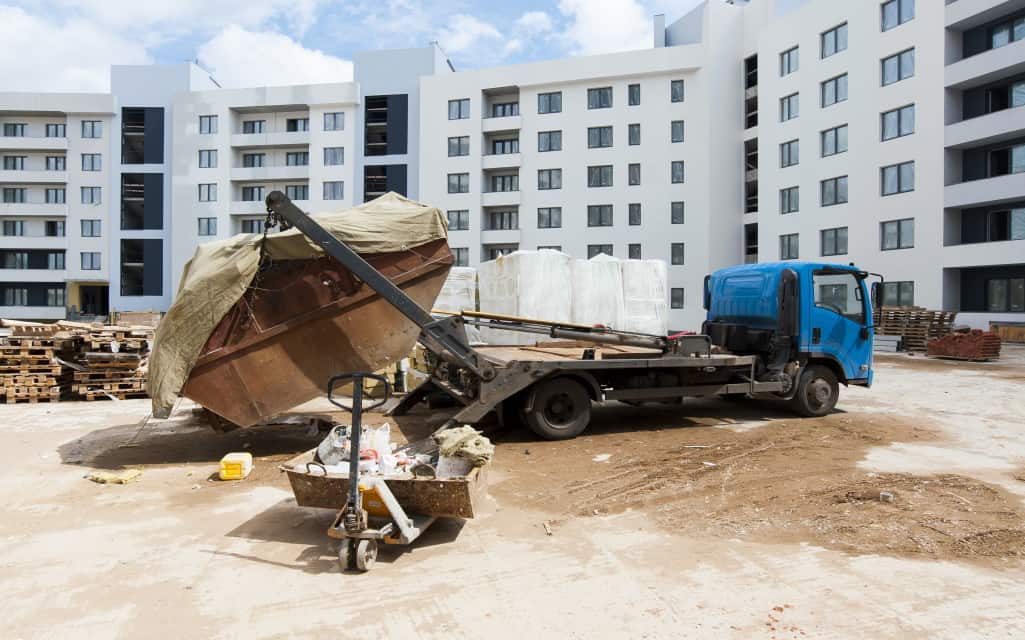Population growth and rapid expansion of urban areas have raised the demand to construct new housing developments and infrastructure. Urban renewal and renovation of high-rises, bridges, and roads generate massive construction and demolition waste. Instead of dumping all this waste in landfills, recycling is the cleaner, greener, and cheaper alternative, and this is done through commercial waste recycling. With spent catalyst recycling in today’s e-waste era, the millions of pounds of spent catalysts and hazardous materials being produced are a major concern.
Demolition and Construction Waste Recycling
Commercial waste recycling, not to be mistaken for the commercial collection and recycling of household waste, is reclaiming scrap material from businesses or industries. Though it doesn’t include chemical, agricultural, or hazardous waste, recycling construction and demolition waste falls under commercial waste recycling. Unlike off-the-curb domestic recycling, commercial recycling involves moving waste in bulk using large dumpsters, gondolas, and large roll-off containers.
Most construction and demolition waste can easily be recycled or reused, and if recycled correctly, it can be an almost endless source of raw materials for numerous uses and products. Federal and state environmental regulations encourage recycling, and construction and demolition recycling is one way to preserve resources and protect the environment.
Recycling the Right Way
Construction and demolition waste consists of various bulky and heavy, but economically valuable materials like asphalt, reusable aggregates, concrete, brick, cardboard, bitumen, mineral wool, metals, wood, glass, plastics, and salvaged building components (plumbing fixtures, windows, and doors). Some of these materials can be incorporated into new products, reused as construction material, used for energy production, repurposed, or directly sold.
The most efficient way to handle construction and demolition waste is to process and recycle it as close to the site as possible. This practice maximizes the recovery of materials as the different materials can quickly be sorted and separated. For example, you can easily sort insulation, pipes, and wire if you collect it separately from other construction debris. It turns the waste matter from the site into a continuous source of new materials that could be immediately used to construct bridges, buildings, urban renewal projects, or new roads.
Scrap Metal Recycling
Rebar, window frames, copper piping, electrical wiring, scrap metal, and other assorted metal fittings and fixtures form a large part of construction and demolition waste. Metals are divided into two types, ferrous and non-ferrous. Ferrous metals contain iron, and because of this, they are attracted to magnets. This characteristic is vital in separating these metals from other types of metals during the bulk sorting of scrap metals. Examples of ferrous metals are cast iron, steel, and alloys of iron with other metals.
Non-ferrous metals do not contain iron. These metals are non-magnetic and are usually softer than their ferrous counterparts. Examples of non-ferrous metals include copper, aluminum, brass, nickel, zinc, and tin. Metals are some of the few materials that can be recycled repeatedly without suffering degradation in quality.
Read More: How You Can Safely Remove Rubbish From Your Home
Conclusion
For commercial construction and demolition waste disposal in Georgia, look no further than Fulton Metals. For over 30 years, Fulton Metals Recycling, Atlanta’s leading full-service scrap metal and electronics recycling company, continues to provide quality waste management and recycling services to Georgia contractors, businesses, industry, and residents. Apart from commercial waste recycling, we offer various auxiliary services to meet all our clients’ needs. Whether you require brokerage, logistics, transportation services, on-site consultation, demolition, site cleanup, or even if you need containers or dumpsters of different sizes delivered to your site in a hurry, Fulton Metals Recycling does it all. We additionally offer to sort and weigh your scrap to help you get the most from your construction and demolition waste. Contact us and let us find the most profitable strap metal recycling solution for your needs!



